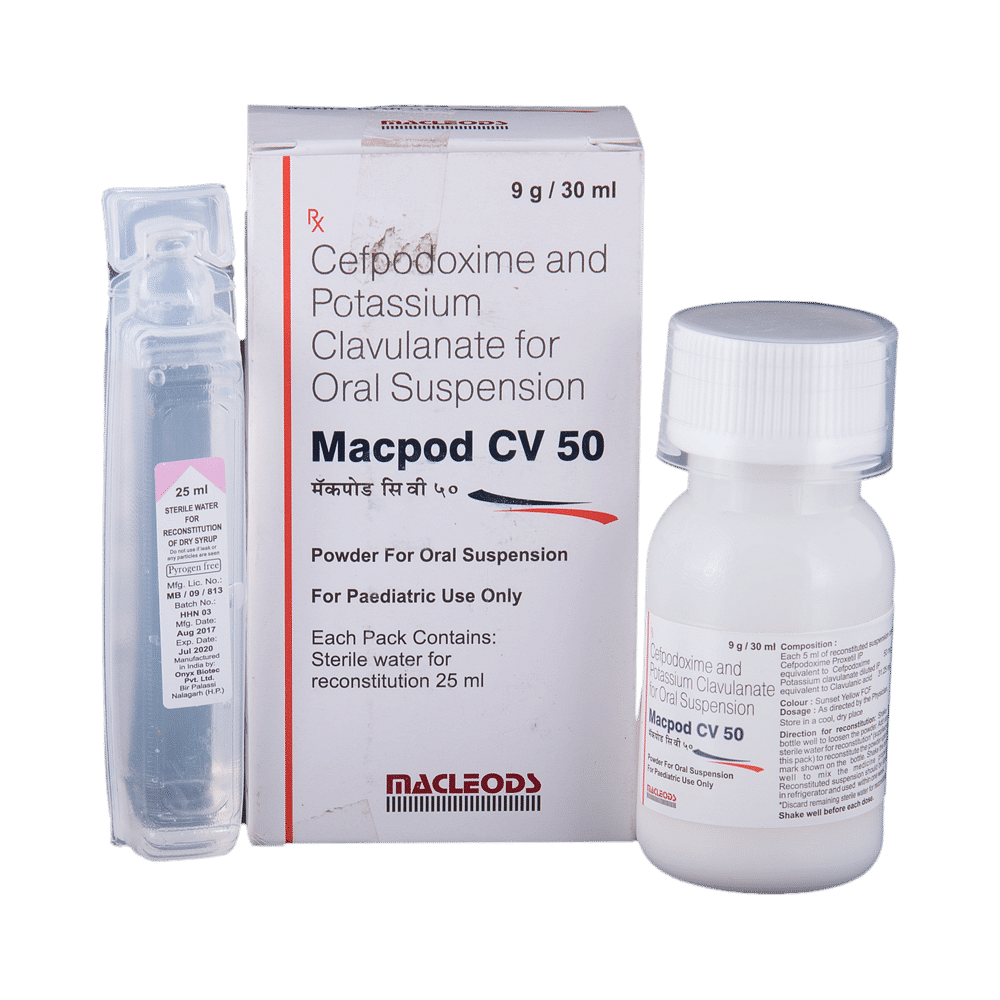
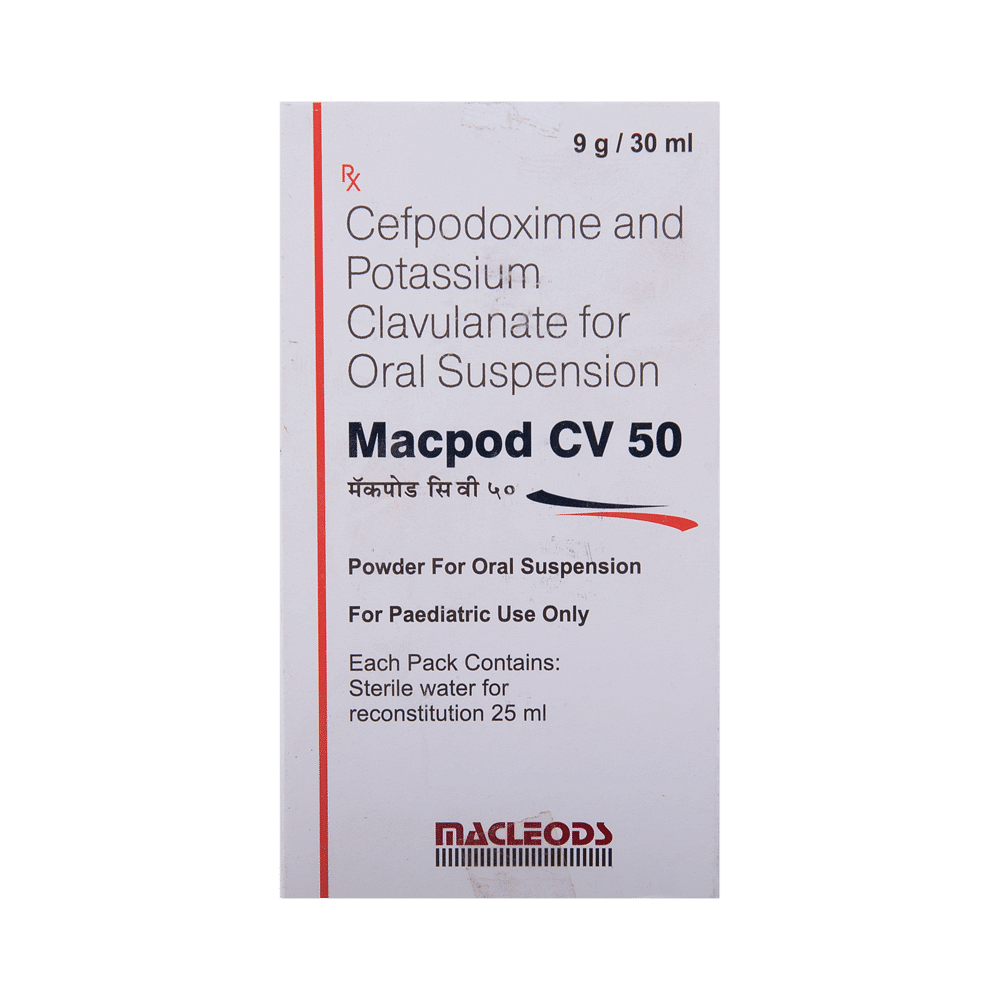
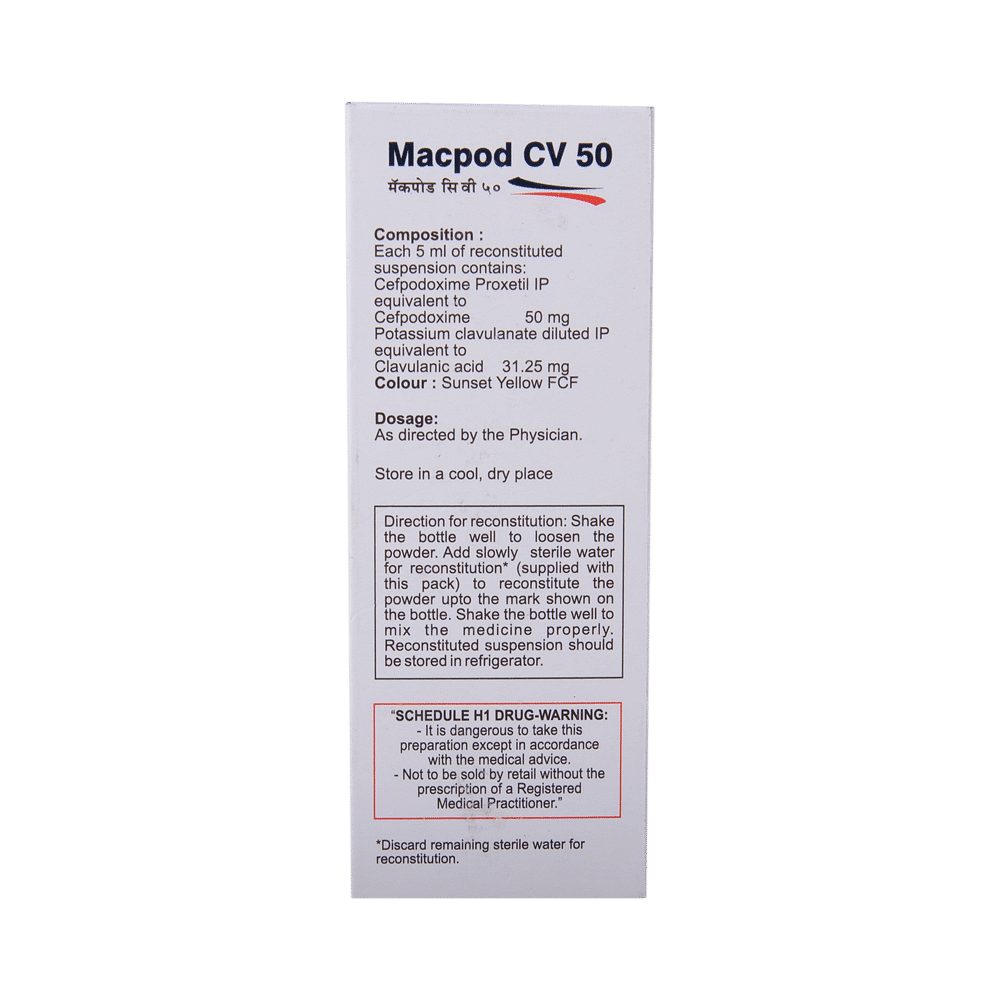


Macpod CV 50 Powder for Oral Suspension
Manufacturer
Macleods Pharmaceuticals Pvt Ltd
Salt Composition
Cefpodoxime Proxetil (50mg) + Clavulanic Acid (31.25mg)
Key Information
Short Description
Macpod CV 50 Powder for Oral Suspension is a potent antibiotic used to treat severe bacterial infections in children, targeting the ear, throat, lungs, skin, and urinary tract.
Dosage Form
Powder for Oral Suspension
Introduction
Macpod CV 50 Powder for Oral Suspension is a combination of two active medicines, Cefpodoxime Proxetil and Clavulanic Acid. It is given to children to treat a wide range of severe bacterial infections. It works by inhibiting the growth of bacteria, thereby preventing the infection spread.
Directions for Use
Macpod CV 50 Powder for Oral Suspension is a prescription-only medicine. It should only be given to children under the guidance of a doctor.
How it works
Macpod CV 50 Powder for Oral Suspension is a combination of two medicines: Cefpodoxime Proxetil and Clavulanic Acid. Cefpodoxime Proxetil is an antibiotic that works by preventing the formation of the bacterial protective covering, which is essential for the survival of bacteria. Clavulanic Acid is a beta-lactamase inhibitor that reduces resistance and enhances the activity of Cefpodoxime Proxetil against bacteria.
Quick Tips
Eating citrus fruit or sipping plenty of water or fruit juice may help if Macpod CV 50 Powder for Oral Suspension causes a bitter taste Encourage your child to drink plenty of water in case diarrhea develops as a side effect
Related Medicines
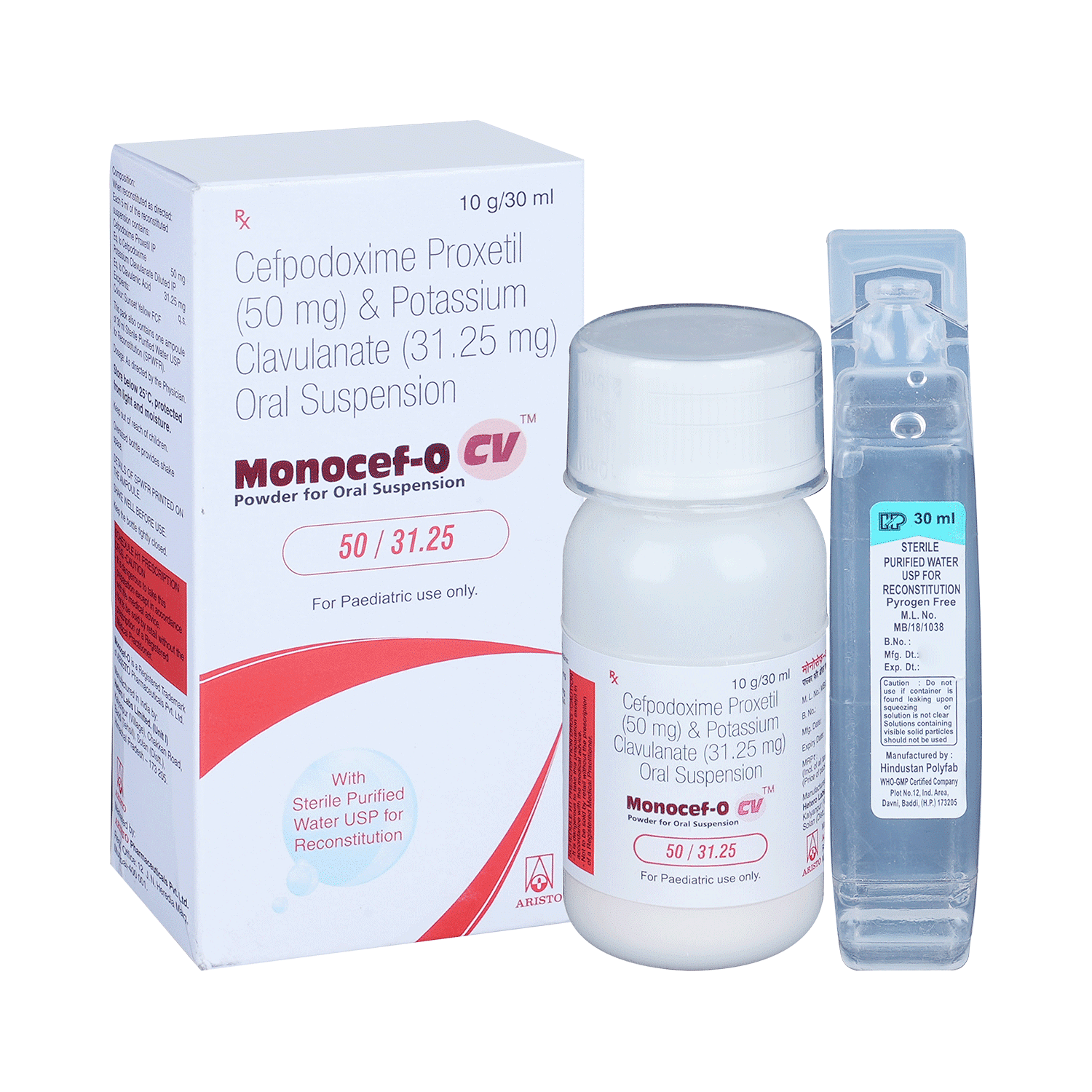
Monocef-O CV 50/31.25 Dry Syrup
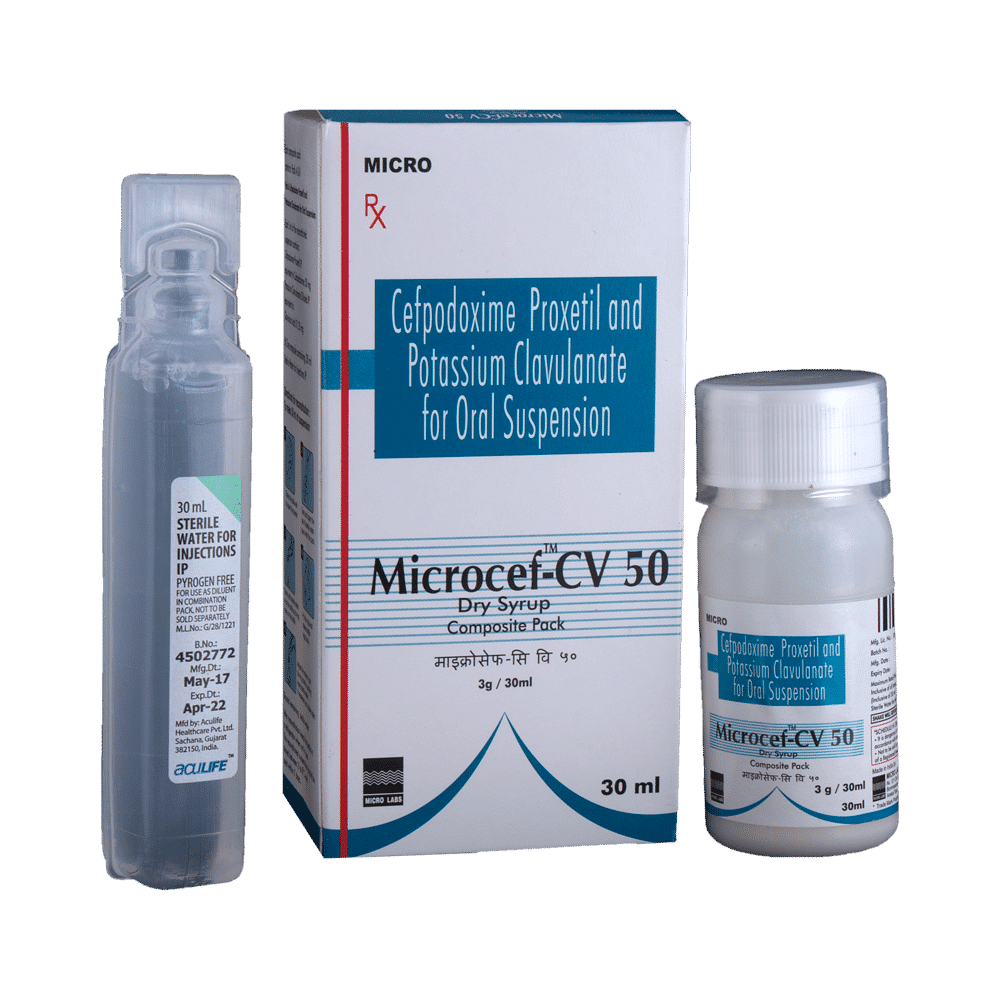
Microcef-CV 50 Dry Syrup
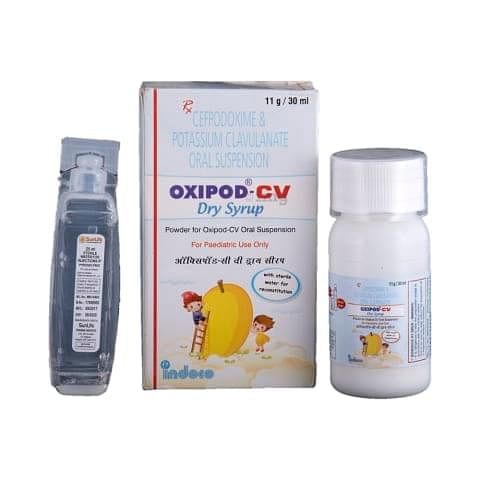
Oxipod-CV Dry Syrup

Swich CV 50 Dry Syrup Pineapple

Mepodox-CV Dry Syrup
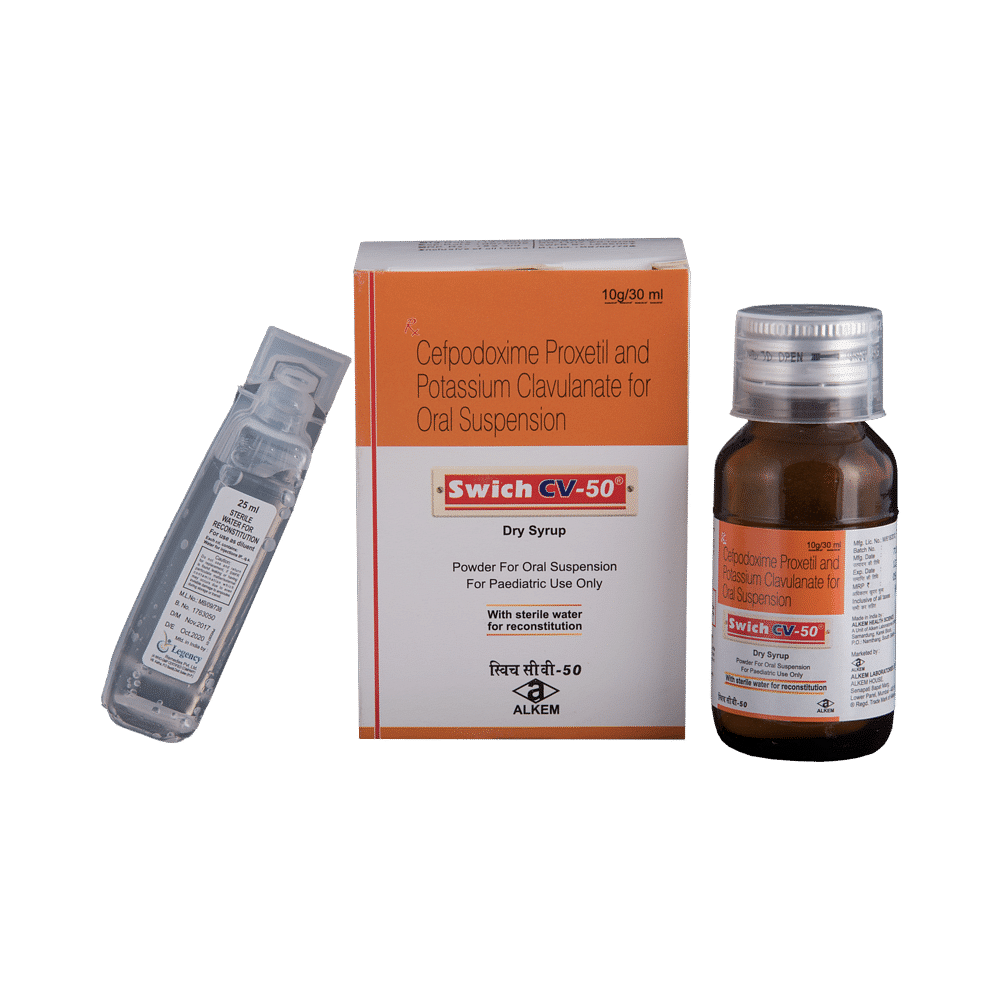
Swich CV 50 Dry Syrup
Frequently asked questions
What if I accidentally give my child too much Macpod CV 50 Powder for Oral Suspension?
While Macpod CV 50 Powder for Oral Suspension is generally safe, giving more than the recommended dosage can potentially lead to side effects. It's important to contact a doctor immediately if you believe your child has ingested an excessive amount of the medication.
What are some potential severe side effects of Macpod CV 50 Powder for Oral Suspension?
Serious side effects, such as persistent vomiting, kidney damage, allergic reactions, diarrhea, and severe gastrointestinal infections, have been reported. If your child experiences any of these symptoms, seek immediate medical attention.
Can I give my child other medications alongside Macpod CV 50 Powder for Oral Suspension at the same time?
It's crucial to consult a doctor before giving your child any additional medicines or supplements. Macpod CV 50 Powder for Oral Suspension can interact with certain substances, and a healthcare professional can advise on appropriate timing and combinations.
Can I give my child vaccines while taking Macpod CV 50 Powder for Oral Suspension?
Generally, antibiotics don't interfere with the ingredients in vaccines, and they usually don't cause significant adverse reactions. However, it's best to follow your doctor's recommendations. Your child should get vaccinated only after their illness is resolved if needed.
What lab tests might be necessary for long-term treatment with Macpod CV 50 Powder for Oral Suspension?
To assess a patient's condition over time, regular kidney function tests and liver function tests may be recommended by the doctor.
Does Macpod CV 50 Powder for Oral Suspension impact digestion in children?
Children often experience digestive problems due to antibiotics. These antibiotics can affect the good bacteria in their stomachs, which increases the risk of infections and stomach upset. It's crucial to monitor your child's symptoms and inform your doctor about any concerns.


